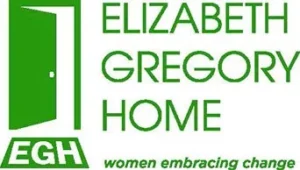Grantee: Elizabeth Gregory Home
Timeframe: October 2022 – September 2023 | Amount: $30,000
EGH meets essential needs in a safe, one-stop hub. EGH will plan and pilot a new service to address mental health needs for women experiencing homelessness through an on-site licensed counselor working within their supportive Day Center environment.
Our proposed behavioral health project will build on the caring community we’ve built for women experiencing homelessness and improve their access to services that can help them address barriers to permanent housing and a more stable future. The pilot project will address the mental health needs of women in our transitional housing program and women who attend our Day Center.
EGH’s transitional housing program allows single women to stay from a few months to two years in our seven-bedroom house located in North Seattle’s Maple Leaf neighborhood as an important step along the path to independence. It gives them time to heal from the physical and emotional exhaustion of living on the streets or in shelters, and provides access to supportive services to address trauma or mental health issues, and to continue their recovery from drug and alcohol abuse. During their stay, EGH staff members provide comprehensive care management, which includes working with residents on their self-identified life goals. The residents live together as a household, sharing responsibilities and support for each other. The support offered is a continuation of our Day Center program, which provides a safe, welcoming environment for women to rest and recover from trauma or substance abuse and access services that can support their journey from homelessness.
Our Care team members are skilled case managers, but we currently refer women in our housing and Day Center program to external licensed providers for more intensive behavioral health needs. We prefer for our Transitional Housing clients to attend at least three sessions of therapy once they get into the program, but they often don’t follow through with this request. Funding from Pacific Hospital PDA would allow us to explore on-site counseling for the eight women in our transitional housing program and other clients at our Day Center program to make these services easier to access and to address the reluctance many women have to trust someone from an external program. We would also like for the counselor to provide classes/sessions on coping, dealing with anxiety, trauma recovery, living in community, and perhaps have a general support group for women experiencing homelessness.
EGH will spend the first three months of the grant period planning the specific implementation details and identifying a licensed counselor to work in partnership with for this project. This project planning will be led by our Executive Director and Program Manager. We will also bring in some of our other program staff to support the planning process; of our eleven staff members, 27% are Latinx, 9% are Black, 27% identify as LGBTQ+, and 18% have lived experience with homelessness. These diverse voices will inform the project design and help ensure we are centering issues of equity as we implement the pilot. Throughout the project, we will ask participants about their experience and solicit feedback on how the behavioral health services can be tailored for their individual needs to make real-time adjustments. We anticipate that we will need to accommodate specific cultural or linguistic needs by providing an outside interpreter to provide help in their native language and research and study any cultural considerations when working with women from varying ethnicities and backgrounds.
After the project planning phase, we will launch the pilot project. We expect that all women from the transitional housing program will participate in order to more easily attend their required therapy sessions, and that over time we would add at least 20women from our Day Center clients. We will identify participants during regular case management meetings, gauging interest and prioritizing women who face the most barriers to accessing behavioral health services from other locations or providers, but we will also allow our contracted therapist to build rapport with women at our Day Center over time, and once trust is established, gently suggest a more formal therapeutic relationship. Many of the women we serve have a lot of paranoia about getting behavioral health help and respond negatively to suggestions of help, so we will lead with trust-building and then move into more formal counseling and referrals to a psychiatrist if medication is required. EGH believes this will be more effective than referring clients to off-site providers for several reasons. It will improve equitable access by reducing obstacles related to transportation and from the lack of counselors with availability for new clients. It will also build on the encouraging and supportive community we’ve facilitated, which may help women of color, transgender women, or women from other marginalized communities feel safer and more comfortable as they access this support.
We expect that an on-site counselor will help women address untreated mental illness or process through the abuse and harm they experience from being unhoused, and will improve health equity by making a more accessible pathway for vulnerable women who otherwise face barriers to meeting mental health needs. In the final quarter of this grant award, EGH staff members will evaluate whether this project is meeting those expectations and what the next steps to program implementation might be.
About Our Grantee
Elizabeth Gregory Home
The mission of Elizabeth Gregory Home (EGH) is to provide a welcoming and respectful refuge where women (including transgender women) who experience homelessness, economic insecurity, and trauma have access to a caring community and critical resources.
